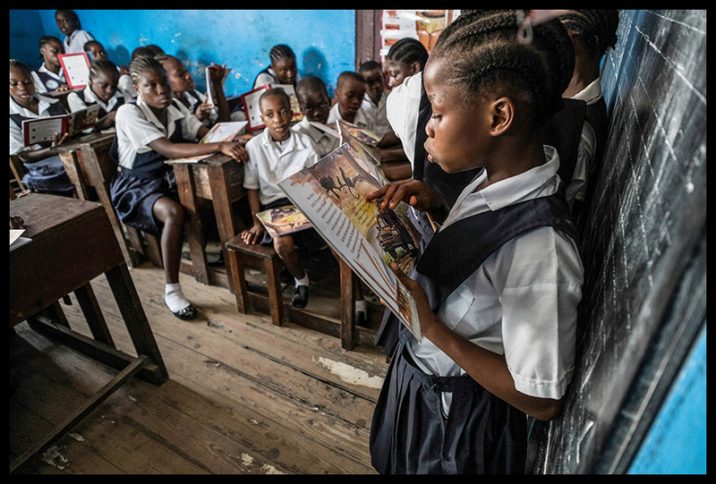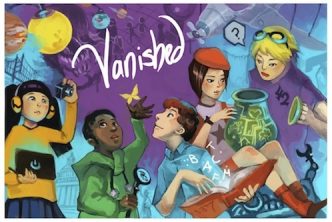Rather than suffer in Boston’s cold, I spent the better part of two January weeks in Liberia, in West Africa – where the temperature hovered around 90 and the “comfort index” pegged at 107. I went to the war-ravaged country, first colonized by free American blacks and freed slaves, on behalf of CODE and the International Book Bank, two literacy NGOs dedicated to the proposition that literacy, reading, and critical thinking are the keys to every other kind of improvement and success. I spent the first week running a workshop for Liberian writers, illustrators, and photographers, whom IBB, and the Liberian group We-Care, hope to teach to produce non-fiction school books for primary school students. This required teaching the students in the workshop the difference between fiction and non-fiction – which was much more difficult than you might imagine, and starting with the most basic principles of photography. It also required five days of teaching from 9-5, a far cry from one, three-hour, night-a-week at the Institute.
I spent the second week photographing in urban and rural schools, documenting, where possible, the work of CODE, IBB, and the We-Care Foundation. The photos you see here should provide a sense, if nothing else, of how privileged we in this country are. I have returned from Liberia thinking, as I returned from Somalia two decades ago, that we in America do not even know what poverty and true deprivation are. And I returned ready to do more of this work anywhere it is offered to me.
You may see more images, a color collection called Liberia Through My Eyes, and Liberian Schools in Black and White, in galleries on my website.
[slideshow_deploy id=’7939′]





